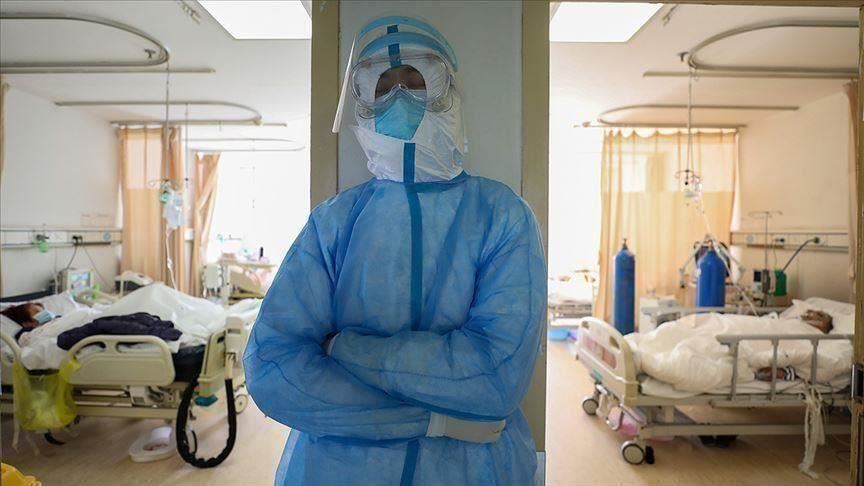Working as an In-Home Nurse During the COVID-19 Pandemic

As the COVID-19 pandemic persists, people’s lives all over the world are changing in a variety of different ways. Stores, gyms, restaurants, and businesses are closing indefinitely, people are losing their jobs, and grocery stores can’t keep their shelves stocked. These uncertain times are putting most of the world in a panicked frenzy; especially because nobody knows when the COVID-19 pandemic will end. People all over the world are afraid, anxious and overwhelmed, and perhaps in the epicenter of all these emotions are doctors, nurses, first responders, and anyone else working in the medical field.
Employees in the medical field have no choice but to deal with this global pandemic, not knowing what the outcome will be. Every day healthcare workers are forced to put their own lives at risk in order to save others. These trying times are forcing healthcare workers to work long shifts, with sick and dying patients in hospitals and doctors’ offices. In addition to healthcare workers in hospitals and doctors offices, in-home nurses are another medical profession that is being greatly impacted by the global pandemic.
In-home nurses are often a healthcare provider that isn’t talked about much in the media when it comes to discussing COVID-19. However, in-home nurses’ lives are changing just as much as other healthcare workers’; here’s how.
How In-Home Nurses’ Jobs are Changing During the Global Pandemic
In-home nurses are primarily used for aging adults that need assistance with everyday tasks. In-home nurses provide personal care, as well as long-term care, depending on the patient. These nurses not only help seniors that struggle to care for themselves, they also help the senior’s family by taking some of the responsibility off of them. An expert from a facility that specializes in home nursing in PA pointed out that in-home nurses have to be especially careful during the COVID-19 pandemic because not only do they need to keep themselves healthy, they also need to keep their patient and his or her family healthy.
The lives of in-home nurses are being impacted greatly during the COVID-19, this post will detail some of the major ways.
Stricter Rules
This goes without saying, the lives of in-home nurses are being made more difficult and intense due to stricter rules and regulations. Strict guidelines and rules are in place to keep in-home nurses, their patients, and their patient’s family’s safe and healthy. Though these strict rules are extremely beneficial and important, they are making being an in-home nurse challenging in a number of ways.
In-home nurses have always had to make sure to sanitize properly and practice cleanliness, however, now with stricter rules, in-home nurses can not do a lot of things that they used to, or at least not as easily. For example, in-home nurses would typically help with bathing and grooming assistance for elderly patients; now, in-home nurses are trying to teach family members to do this so that they can avoid as much physical contact as possible.
Likewise, it is now mandatory for all in-home nurses to take their temperature before a shift and at the end, and state whether or not they have any flu-like symptoms. In-home nurses are also expected to only report to work and back home in order to ensure their patient’s safety, avoiding everywhere else, including the supermarket. In-home nurses are still doing their jobs during these trying times and will still provide their patients with the best service possible; however, sometimes it is in the patient’s best interest that they [the nurses] step back when they can.
Televisits
Televisits are changing the way that in-home nurses are doing their job. When they can, in-home nurses are using technology like Zoom and Skype to meet with their patients in order to avoid as little in-person contact as possible. Some patients only need daily or weekly check-ups, so in-home nurses are starting to do check-ups via a video call and only coming to their patients’ homes if totally necessary.
Similarly, in-home nurses are coaching family members via a televisit. Family members that live with their aging loved one are expected to assist their parents or grandparent as much as possible and can learn how to do so by talking with an in-home nurse via a video call. Televisits are completely changing the way that in-home nurses are doing their jobs, which can be both beneficial and frustrating.
Shortage of Supplies

This is an issue for healthcare professionals all over the world. Healthcare facilities are running out of gloves, gowns, and masks for their employees, as well as ventilators and medication for patients. Not only will a shortage of supplies have a direct impact on patients who have contracted the COVID-19 virus, but it will also have a huge impact on healthcare professionals’ lives; putting them more at risk of contracting the virus. In-home nurses especially have to be careful as they are dealing with people in the comfort of their own homes.
The shortage of supplies is changing the way that in-home nurses are operating because their lives are at a great risk, and there is little to nothing that they can do about it. In-home nurses will not be able to provide the quality care that they normally would have been able to if they had the proper supplies and equipment; if this persists, the patient will end up being impacted by this shortage as well.
In-Home Nurses are Forced to Face The Unknown
Perhaps the most trying issue that in-home nurses are forced to cope with is the unknown. In-home nurses don’t know when this pandemic will end; nor do they know what else they can personally do to make the circumstances better for their patients. In-home nurses all over the world are being forced to carry on with their everyday work tasks and responsibilities in order to provide the quality care that their patients deserve. Overall, in-home nurses’ lives are changing immensely due to the COVID-19 virus; however, in-home nurses are staying dedicated to their job and their duties.
About the Author

Veronica Baxter is a writer, blogger and legal assistant operating out of the greater Philadelphia area.